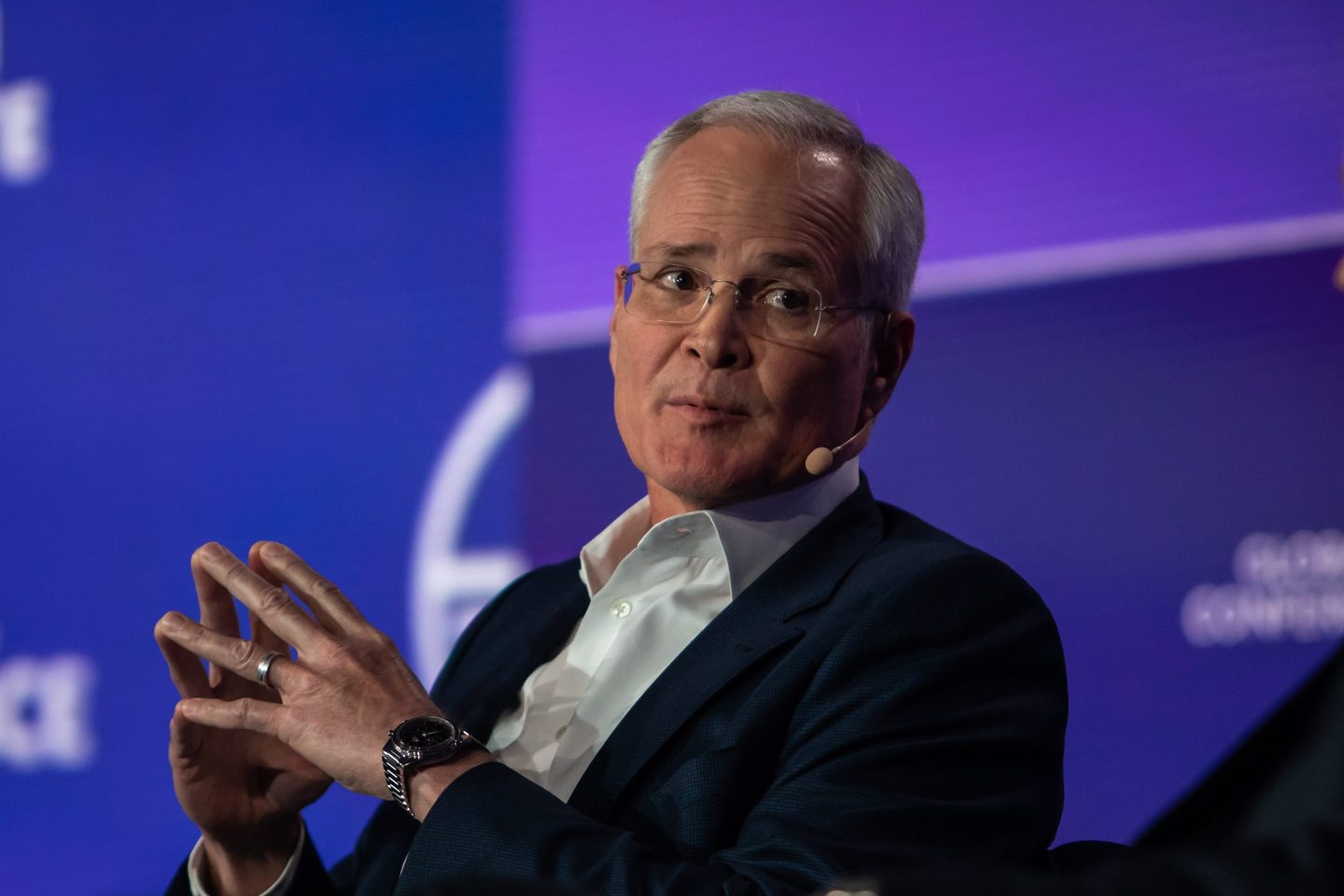Good morning!
Workers are willing to quit their jobs pretty quickly these days, leaving companies scrambling to find the best ways to retain talent and lengthen the average employee tenure rate.
But Verizon, the telecommunications giant, seems to have found a way to hold onto its employees. The average tenure of around 110,000 workers is 12.9 years, well over three times the U.S. average.
“We call it the special sauce here because I do think it’s quite magical to have employees that stay with you for so long,” Sam Hammock, Verizon’s chief human resources officer, tells Fortune.
Hammock conducts employee “stay interviews” on workers’ first work anniversary and any subsequent milestone, where she asks what has kept them at the company. Her team also gets sizable input from engagement surveys and exit interviews. She says three key aspects of the company’s people strategy help with worker retention: culture, professional growth opportunities, and company benefits.
Culture
“Culture” has become a corporate buzzword in recent years. But Hammock insists that employees won’t feel a sense of culture if leaders don’t model it for them.
“Culture is a verb, it can’t just be something that HR or the CEO puts on paper. It’s what people really feel and experience,” she says.
Hammock says Verizon’s culture emphasizes employee wellbeing as a key aspect to meeting business objectives. Employees will perform better if they feel holistically supported, both in their careers and with whatever personal issues may be affecting them. “Sometimes you can get so focused on the numbers that you forget it’s not just what you do, it’s how you do it,” she says.
The telecommunications company also recently launched a new annual leadership training program called “Raise the Bar,” where attendees are taught what is expected of them as leaders at Verizon, but also engage in peer-to-peer learning and discuss the takeaways with their own team.
Professional growth opportunities
Hammock says that Verizon has long encouraged employees to pursue professional development opportunities, and learn new skills.
Last year, they kicked that up a notch by unveiling an internal platform called “Journey Forward,” in which employees can learn new skills, and grow in their current roles. A major part of the platform is “Talent GPS,” which helps workers identify other roles they’re interested in, what skills or experience the roles require, and how they can develop that experience.
Introducing this platform also meant revamping Verizon’s internal jobs hierarchy. The company overhauled its job taxonomy, creating fewer job categories, and reducing the total number of job codes from 70,000 titles to just 2,100, along with clear descriptions of the responsibilities, skills, and experiences needed for each title. Hammock says the whole endeavor took her team more than a year.
Benefits
Verizon workers, and frontline employees in particular, say a major reason they stay at the company is the benefits, according to Hammock.
Referred to as the total rewards package, employees like the financial benefits in particular, which include tuition assistance, an employee stock equity program called “Stock Together,” as well as short-term and long-term financial planning education, including access to coaches and advisors.
Verizon recently also started offering a benefit called “Secure Your Future,” where the company matches employees’ student loan payments as 401(k) contributions—a new benefits solution available to employers thanks to the SECURE 2.0 Act.
More support for tuition repayment was one of the top requested benefits from employees in an internal study conducted in late 2022, Hammock says. More than 500 workers signed up for “Secure Your Future” the first day it was available in December, and more than 1,450 employees have enrolled.
“The ‘why’ was there for us, when we saw such a resounding demand,” says Hammock. “It’s huge.”
Paige McGlauflin
paige.mcglauflin@fortune.com
@paidion
Today’s edition was curated by Emma Burleigh.
Around the Table
A round-up of the most important HR headlines.
- Mickey Mouse and Goofy are unionizing—Disneyland character performers are looking to join the Actor’s Equity Association, which will seek voluntary recognition from the Disney company. Reuters
- Major U.S. companies aren’t hiring workers without college degrees like they promised. Less than 0.2% of workers hired by firms who changed requirements didn’t have a degree. Bloomberg
- A former Twitter engineer fired under the Elon Musk regime says he was wrongfully terminated after he was falsely accused of leaking information to the press. Business Insider
Watercooler
Everything you need to know from Fortune.
Delayed dates. Thousands of Uber and Lyft drivers picketed at major U.S. airports on Valentine’s Day demanding better pay and benefits—the largest strike to date. —Dee-Ann Durbin, AP
Tech layoffs. Cisco just announced that it plans to lay off more than 4,000 employees, or about 5% of its global workforce. —Michael Liedtke, AP
The kids aren’t alright. American workers are struggling mentally, and many feel their managers should foster a work culture open to discussing mental health. However, most bosses are unprepared to do so. —Trey Williams
This is the web version of CHRO Daily, a newsletter focusing on helping HR executives navigate the needs of the workplace. Sign up to get it delivered free to your inbox.













